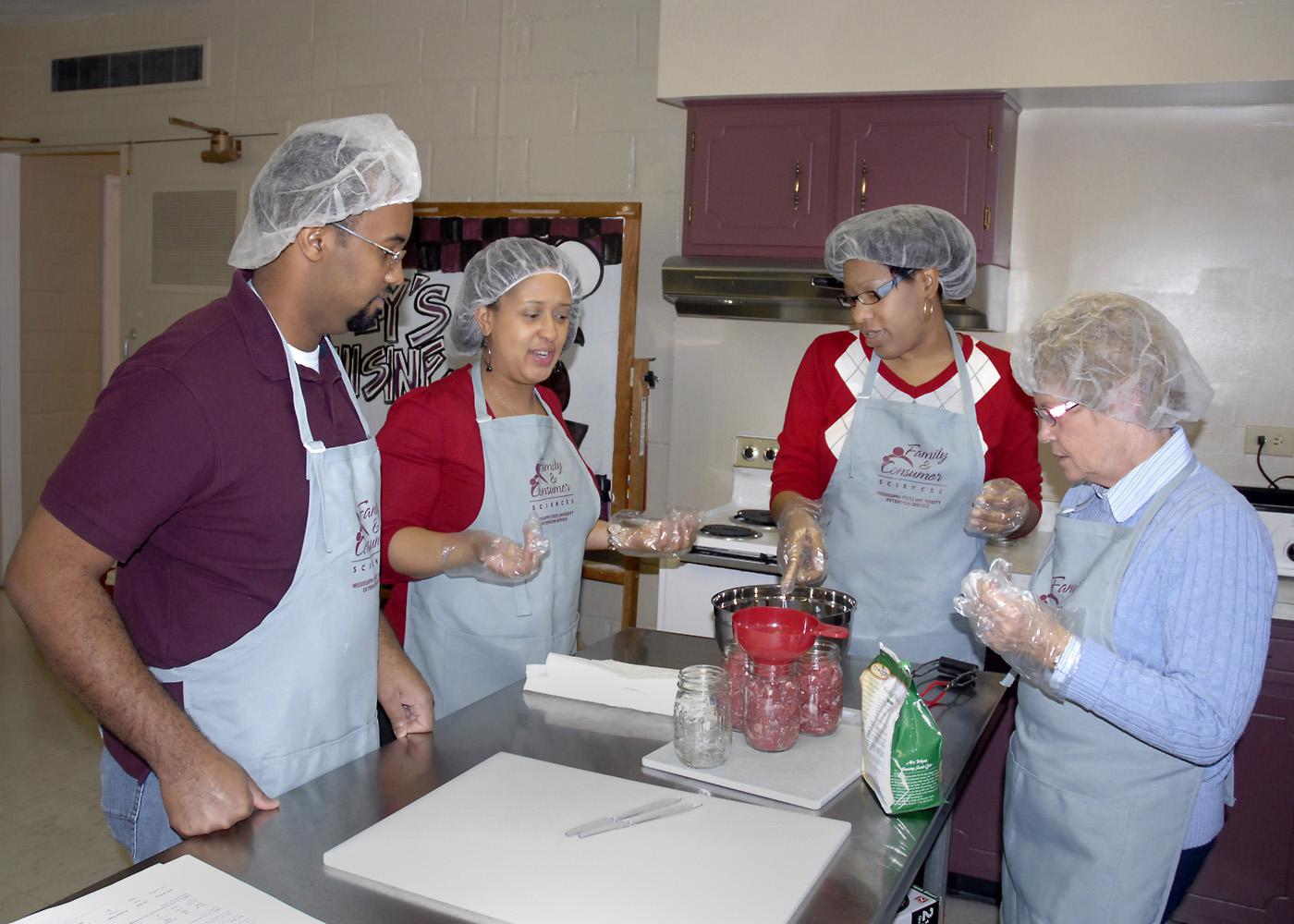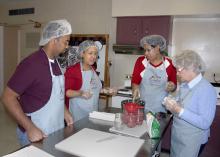Information Possibly Outdated
The information presented on this page was originally released on January 26, 2012. It may not be outdated, but please search our site for more current information. If you plan to quote or reference this information in a publication, please check with the Extension specialist or author before proceeding.
Extension agents anticipate food preservation questions
MISSISSIPPI STATE – Hard economic times may prompt people to preserve food at home to cut meal costs, but Extension agents are betting the taste and quality of the products will hook them on the experience.
Brent Fountain, human nutrition specialist with the Mississippi State University Extension Service, led a three-day workshop in January for 42 Extension agents from across the state. True to Extension’s 4-H educational philosophy, “Learn by doing,” the agents gained hands-on experience they will pass on to residents in their communities.
“County Extension offices are seeing an increase in calls from clients with questions about food preservation,” Fountain said. “When people learn how to preserve food, they are able to overcome fears and confusion they have about the process. When they take the product home and enjoy it, they want to preserve more foods. There is just something special about doing it yourself.”
Fountain said consumers turn to home food preservation for a variety of reasons. In some cases, it saves money to preserve home-grown produce. Do-it-yourself methods also give people control over ingredients, such as salt, sugar and preservatives.
The training helps people who are new to the process and those with years of experience.
“Many of the temperature, time and ingredient recommendations have changed in recent years. Using an old family recipe or one from an old cookbook may not be safe, even if no one has gotten sick before,” he said.
Paula Threadgill is the family and consumer sciences leader for MSU’s Extension Service. She said Extension is addressing the increased demand with additional equipment and training for agents.
“We have recently equipped every county Extension office with a canner pressure gauge tester so that home canners can make sure their equipment is working properly,” she said. “We anticipate a continued increase in questions related to food preservation and requests for training.”
Threadgill, who is also the interim state leader of 4-H, said youth agents are becoming more involved in food preservation activities.
Terence Norwood, the 4-H youth agent in Jefferson Davis County, took part in the recent training. With a degree in secondary education, he had no experience with food preservation – except as a consumer.
“I grew up in 4-H, but my projects were leadership and public speaking. Food preservation isn’t hard, but you need practice to become comfortable,” Norwood said. “We’ve learned basic food safety and the risks of improper preservation. We have learned the entire process from the ground up.”
Norwood said he anticipates some challenges from experienced cooks who want to follow older methods that are no longer approved.
“Our goal is to teach the current recommendations, and eventually, everyone will get the message,” he said.




